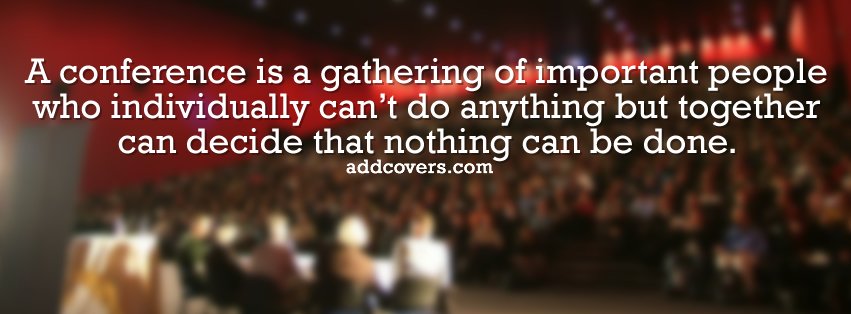| Topic: Mind-Teasers :-) | |
|---|---|











|
|
|
|
|


|
|
|
|
|
|
Edited by
Kaustuv1
on
Fri 05/08/15 07:24 AM
|
|
|
"The most moving love story of the war": "When her husband was shot in the head by a sniper, Eileen Willett risked her own life by travelling alone to France to bring him home!" [By 'MARY GREENE']
This is a true story of wartime determination and devotion - of a young woman's passionate love that defied social convention in an era when women didn't even have the vote. Above all it is a story of female bravery at a time when men were being feted for their courage. But when Wilfred Willett and Eileen Stenhouse - grandparents of political historian Anthony Seldon - met at a Cambridge May Ball in 1913 they could not have guessed at how their love would be tested by the horrors of war. Wilfred was a medical student at Trinity from a middle-class family and Eileen a sheltered Edwardian young lady who had just emerged from a Swiss finishing school. Her stepfather, a wealthy stockbroker, had been wary of letting her attend the ball as her older stepsister had recently caused a scandal by eloping with the family coachman. Eileen, though she was 20 and had been invited by a male cousin, had to be chaperoned by her governess. For Wilfred and Eileen - who must have looked ravishing in her gown of champagne lace and a purple velvet cloak - it was love at first sight. In the months that followed they embarked on a courtship that only became more difficult when Wilfred began his hospital training in London. He was only 22, likely to be dependent on his parents for several years to come, and neither family would have approved of an engagement. Mrs Willett, Wilfred's domineering mother, disliked Eileen from the start. Eileen's family, who had aristocratic connections, thought Wilfred wasn't good enough for her. So on 16 December 1913 - just seven months after they met - the couple married in secret. 'They were ecstatically happy, but there were dark clouds on the horizon. Wilfred was consumed by the approaching war and without telling Eileen, he joined the London Rifle Brigade.' Eileen continued to live at her grand family home in Kensington where there were 12 servants. Wilfred continued with his studies. But she rented a bed-sitting room close to the hospital for clandestine afternoon meetings. They were ecstatically happy, but there were dark clouds on the horizon. Wilfred was consumed by the approaching war and without telling Eileen, he joined the London Rifle Brigade. War was declared on 4 August 1914, Eileen's 22nd birthday. The time had come to tell their parents they were married. There was a row, of course, then a 'proper' church wedding a few days later, which Wilfred's mother refused to attend. He embarked for France on 4 November. Five weeks later, on 13 December, Wilfred's valet Sgt Moore was shot and wounded in the leg in no-man's-land at Ploegsteert Wood in Belgium. Wilfred grabbed his medical kit and ran to help him. But as he turned to call for the stretcher-bearers, he was hit in the head by a sniper, the bullet passing straight through. At home in London, Eileen was frantic when Wilfred's letters stopped and there was no news, not even a postcard for their first wedding anniversary. On 20 December she heard at last that Wilfred was in hospital in Boulogne. Nobody expected him to survive. Nobody, that is, except his wife. Determined to bring Wilfred home, she spent two days badgering the War Office, then the Foreign Office, which did not encourage civilians to travel to France or Belgium to visit severely wounded soldiers or attend their funerals. Women making shells in factories were called 'Canaries' because the picric acid they worked with stained their skin yellow. One of them, Mary Hall, recalled, 'Later we'd have a good wash, and our skin was perfectly yellow, even to the toenails.' Trench conditions varied enormously. Some were little more than open sewers, but the Germans furnished theirs with beds and armchairs and, in the case of one found at Beaumont-Hamel on the Somme, hung tapestries on the walls Liberal politician Charles Masterman recruited Britain's literary giants to write war propaganda. Among those who lent their pens to the Allied cause were Rudyard Kipling, HG Wells, Thomas Hardy, GK Chesterton and Sir Arthur Conan Doyle. Remarkably, she managed to get an official permit signed by the Foreign Secretary, Sir Edward Grey, allowing her to sail across the Channel. The inexperienced girl made that journey into the war zone quite alone. At the hospital, Eileen found Wilfred unable to speak and barely conscious. His doctors had written him off. She persisted until they allowed her to take him back to England; a nightmare boat journey. She secured a posse of medical orderlies to travel with them but even with their help, Wilfred was so carelessly strapped onto the stretcher that he almost slipped off between the boat and the jetty. Finally he was admitted to a convalescent home in London, but when he began to suffer from convulsions, Eileen realized the only person who could save his life was the venerable surgeon who had been his professor at the London Hospital. She got him admitted to the hospital, where he finally underwent surgery to remove splinters of bone from his brain and began to recover. But there was to be no happy ending for the young couple. Wilfred's speech was badly affected and he was paralyzed on his right side; there was no way he could resume his medical career. Dependent on his army pension and a small allowance from his parents, he and Eileen moved into a small house in a village near Tunbridge Wells and had a son and two daughters. Wilfred suffered from depression and outbursts of rage. One bitterly cold night on a seaside holiday in 1931 when she was 11, their daughter Marjorie saw her mother running towards the sea, then leading Wilfred back from the water's edge. Years later Marjorie asked Wilfred what had happened. 'He told me he had been filled with unutterable misery... He could not bear to go on,' she wrote in her memoir of her parents, Poppies And Roses (now out of print). 'He thought he would dash into the waves, walk until he was carried off his feet and sink to his death in the waves.' But he didn't. He thought of his family, unsupported if he died and his war pension stopped. When Eileen came, he remembered clinging to her. 'Only in her arms did I feel sheltered from the remorseless world,' he said. Wilfred found some solace in his love of nature and became quite well known for several books about British birds and wild flowers. Wilfred and Eileen died in 1961, within six weeks of each other. Eileen first, stoically, of cancer, then Wilfred had a stroke. They had been married for 48 years. Then, in the early 1970s, a young English teacher at Tonbridge School heard their story from a 16-year-old pupil, Anthony Seldon. That young teacher was Jonathan Smith, whose lightly fictionalized novel Wilfred And Eileen was adapted for TV in 1981 and has recently been republished. Just before Wilfred and Eileen's daughter Marjorie passed away recently, at 94, she said her father used to talk to her about the war. 'It's a good story,' she said, 'it really does have everything.' 
|
|
|
|
|

'Blessed is ONE such human life' 
|
|
|
|
|


|
|
|
|
|


|
|
|
|
|

 'Divine' 'Divine' 
|
|
|
|
|


|
|
|
|
|

'Heaven ON Earth'? 
|
|
|
|
|

PS: Foundations Of A 'True Relationship': (a) Honesty (b) Transparency 
|
|
|
|
|


|
|
|
|
|
|
"The Art Of Expectation" [by 'Stewart Blackburn']
I doubt that I'm the only one around who has had conflicting feelings and thoughts about expectations. When Serge exhorts us to "expect the best" I have been torn. On the one hand, I have recognized the power of expectations in bringing things to pass. But on the other hand, expectations can lead to disappointment and problems. Expecting someone to do something that doesn't happen often leads to huge conflicts. Relationships, for example, are often filled with such unfulfilled expectations. Personal expectations of how the future will work out often leave one let down. The results range from mild disappointment to fierce anger and great pain. Even so, we all have expectations and we pretty much have them all the time. We expect the road to be there when we drive over the hill. We expect our bodies to be able to do what they "always" have been able to do. We expect the police, the fire department, the pizza delivery man to be there when we call. And when these expectations are not met, part of our world seems to fall apart. It is easy to fix the responsibility for these failed expectations on other people or forces outside of ourselves. But, clearly, we created these expectations. They are a product of our own thoughts, long held as beliefs or newly-minted in the moment. We almost never think about events that come out as we expected. After all, we expected that. Consequently, we often fail to see how much of our lives happens in accordance with our expectations. We live in a sea of unconscious expectations that carry us along in everything we do. In fact, our whole world view is a mass of mostly unconscious expectations. Everything from the water coming out of the faucet to the buttons fastening our coats happen pretty much as we expect. And whose expectations are they anyway? I never doubted as a child that I would go to college because that was the family expectation. We are told to expect, and we do, that our money will be safe in the bank, we will get excellent service in a 5-star hotel, that our plane will arrive safely at our destination (luggage is a different matter). From whatever source, once we make it our own, the expectations clearly have a momentum of their own that carries great power. Wonderful, majestic things happen when we maintain expectations of wonderful, majestic outcomes. For the most part the world seems to be our garden, ready to harvest. Without these expectations we would have to sort everything out from scratch. But what happens when these expectations seem to fail? Our belief in a certain "reality" crumbles and even our own identities get disturbed by failed expectations. For myself, I have spent a lot of time trying to limit my expectations so that I would not have to deal with the misery of disappointment. In fact, I took some pride in living as free as possible of expectations and found Serge's exhortation to "expect the best" quite disturbing. So I had to look at what an expectation is. First off, it is not a promise. It is not a guarantee of a specific outcome. It is not a demand made to the Universe that our desires be met. As I looked more deeply I saw that it is simply how we are framing both the present and the future for ourselves. It is a creative act, based on past experience, energized by emotions and feelings, and modified by our imagination and desires. As such our own personal energies are being focused on the creation of that which is "expected". Thus, if I wander into a seafood restaurant and order salmon fillet medium-rare, I am creating a situation that I imagine will be one of culinary delight for myself. There are, of course, other factors involved here - the quality of the fish, the skill of the chef, the prompt delivery of the dish to name a few. No telling what I will actually get, but without my expectations I would have very little chance of getting what I want. I have often experienced disappointment verging on anger at getting a poorly prepared meal (the curse of an ex-chef). It has been a real challenge to me to look at my expectations and to take responsibility for them. I had to learn to accept that my expectations are my creation, focusing my energies on what I want and only that; that there was no blame to be spread because my expectations were unfulfilled; and that it was only disappointment that I was experiencing - the end of the world would come later. This is all leading to my awareness of the necessity for taking responsibility for our expectations and for using them creatively. As an adventurer I often delight in not knowing what happens next. I make the choice to not have expectations of what situations I may encounter. However, I also make the choice to expect that I will be clever enough to handle whatever arises and to expect that when it's all over everything will have worked out for the best. By treating expectation as a valuable tool when used consciously instead of as a compact with the gods, often betrayed, we can put the magic of expectation to use. It seems to me that consciously chosen expectation is a notch higher than intention in the realm of focusing energies. It has a way of locking out debilitating doubt that other high-focus mental techniques, like faith and hope, do not have. When used consciously, expectation is a way of focusing one's own energies in the most powerful, forceful way towards a desired result. We have to remember that it is not the only influence in any given situation. It may not even be the most influential. But it is our way of being the most effectual.   
|
|
|
|
|
|
"Ten most common reasons why marriages fail" [By: 'Dr. Val Farmer']
Drawing from my experience as a marriage counselor, here are 10 common problems that destroy marriages. 01. 'Poor boundaries': Engaging in intimate conversations with members of the opposite sex leads to emotional experiences that cloud judgment, trigger fantasy life, and progress toward physical intimacies outside of marriage. The connection and acceptance found in an illicit relationship diverts energy away from solving problems with one's spouse. Confiding about marital problems with a sympathetic listener provides a contrasting experience to whatever dissatisfaction might be present in the marriage. 02. 'Selfishness': There needs to be fairness in the distribution of work and responsibility within the relationship. This willingness to extend oneself also pertains to meeting emotional needs. Placing one's desires consistently ahead of a partner's emotional needs and responding only when it is a matter of convenience, demand or negotiations leaves a spouse feeling unloved. If too many important needs are neglected over time, the unloved spouse feels used or taken advantage of. Consistent lack of love interferes with a spouse's willingness to give unselfishly in the relationship. When marriage partners don't trust their needs will be met, they tend to meet their own needs first and become hesitant to share freely of themselves. Selfishness in its most destructive form involves control, manipulation, jealousy, possessiveness, demands and abuse in order to get one's way. In milder forms, it is lack of consideration and respect. 03. 'Disrespectful judgments': Marriage needs acceptance, admiration, appreciation and emotional safety. Feelings of anger and hurt follow when the process of exploring differences or contrasting opinions consistently degenerates into criticism, impatience, labeling, contempt, or discrediting one's thoughts or feelings. It is disrespectful to try to change a spouse's thinking by lecture, ridicule, threats, brainwashing, or negative aspersions. These perceived attacks on personality, character, intelligence or values undermine the mutual respect that forms the basis of love. The tendency is to retaliate in kind or else to withdraw and not share one's ideas. It becomes hard to love or give of oneself when one feels unfairly judged or mistreated. 04. 'Explosive, angry outbursts or rages': Anger can have a useful purpose if it is listened to and leads to dialogue and constructive problem-solving. However, anger can either create more anger or withdrawal, both of which interfere with effective communications. Unbridled and unpredictable tempers interfere with emotional safety and trust when spouses need to engage each other on emotional issues. The issues behind the anger get lost as the angry response is perceived as unjust, abusive and unwarranted. It is intimidating and controlling. 05. 'Lack of emotional intimacy': The lack of sharing one feelings, goals, hurts, struggles, joys and emotional details of one's life lead to loneliness and sadness. Feelings of friendship and partnership come from being connected through interest, deep listening and empathy, mutual support, and sharing perspectives as confidants. Expectations for marriage include a desire for this soul-satisfying experience of being known, understood, loved, accepted and valued for who you are and having a place to turn for comfort and support. If this component of marriage is lacking, marital partners feel cheated of the essence of what they truly expect marriage should provide. 06. 'Lack of affection and sexual fulfillment': When needs for sex and affection are not met, problems mushroom. Without affectionate gestures and words, love seems hollow and not as believable. People don't marry to get a roommate. They expect to have an active and fulfilling sexual life. Chronic anger and conflict dampen a couple's willingness to be affectionate with each other. 07. 'Leading separate lives': Relationships also suffer when couples don't mesh their lives through shared activities, recreational companionship or spending enough time together. Living too independently from each other takes away connection and joy from the relationship. Couples need to function as a team when it comes to parenting, managing a household, sharing finances, and relating to relatives. They need to consult with each other about important decisions and coordinate their schedules. Time needs to be set aside to enjoy conversation, adventures, common interests, vacations and fun. Time spent together should be anticipated with pleasure. Without this component, couples drift apart and have little in common. 08. 'Communication is a painful process': A marriage with too much conflict, hostility, blame, criticism, defensiveness, and belligerent verbal attacks seems like life with an enemy instead of a friend. Marriage needs to be a place of safety, a haven, a place of love and refuge, not a war zone. Always being 'right', being 'rigid', 'judgmental', or easily angered or flooded with emotion disrupt communication before problems can be solved. Avoidance of conflict is even a bigger problem as the emotional connection is lost when couples don't share opinions and attempt to resolve conflict. When repeated attempts to solve problems fail, one partner gives up and starts to withdraw emotionally. 09. 'Destructive habits and addictions': Addictions have great power to be placed in front of the needs and happiness of a partner. Betrayal, hurt, anger and pain follow the wake of addictive behavior. Addictions need to be treated to protect the integrity of the marriage. 10. 'Dishonesty, laziness and other character defects': Basic trust and respect underlie love and form the basis of relationships. Lies, deceit, disloyalty, secret habits, or emotional dishonesty about thoughts or feelings destroy trust and respect. Spouses who willingly don't take or follow through with their personal responsibilities unfairly shift those burdens to their partner. Marriage is a partnership between equals, not a 'parent/child' relationship. 
|
|
|
|
|




|
|
|
|
|


|
|
|
|
|
|
Edited by
Kaustuv1
on
Sat 05/09/15 06:33 AM
|
|


|
|
|
|
|


|
|
|
|
|


|
|
|
|
|









   
|
|
|
|
|


|
|
|
|
|






